Graham Reid | | 4 min read
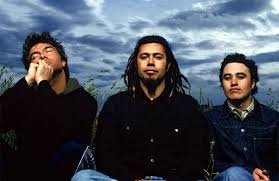
Guitarist
Warren Maxwell, bassist Rio Hemopo and drummer Riki Gooch have built
on their debut True to create a mystic soulful album in which the
band continues to explore its fresh take on reggae and funk.
Maxwell
says the album's warm, meditative sound took some people by
surprise.
"It's so different from the live gigs which are our
biggest musical selling point," he told NZPA recently.
"It's
definitely not the oonst (eds: slang for energetic dance music) that
I know a lot of people had been expecting."
He says the band
decided early on not to try and reproduce in the studio the
exhilarating magic created between performers and audience.
Instead,
TrinityRoots recorded Home, Land and Sea with Black Seeds producer
Lee Prebble at The Surgery, their studio situated in a Wellington
building which has for a couple of decades housed rehearsal rooms and
recording studios in the capital.
"There were a few ghosts we
had to scare out of there," Maxwell laughs.
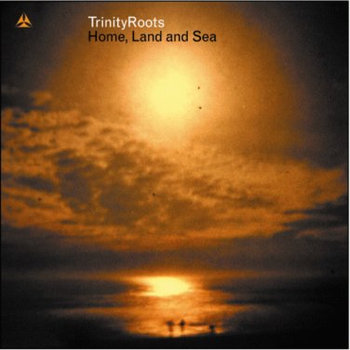 Unlike the band's
early recordings where the band took care to create an atmosphere to
aid their performances, this time they relied more on their inner
resources for inspiration.
Unlike the band's
early recordings where the band took care to create an atmosphere to
aid their performances, this time they relied more on their inner
resources for inspiration.
"We have matured in the last
couple of years and we had the internal energy to have a bit more fun
and not get caught up in the seriousness of the thing."
With
much modern music dominated by the computer, Maxwell says the band
worked to keep Home, Land and Sea as organic as possible.
"There's
a couple of things on the album that just about fall over backwards
and we really wanted too keep those elements in there."
Maxwell
believes listeners are coming back to relaxed imprecise human
rhythms.
"Things come full circle. We've had the whole sort
of dj produced genre... and maybe it's rekindled the novelty of live
playing.
"We enjoy the whole live thing, the ability to move
and make a few mistakes now and again and laugh about them rather
than getting too bummed out about a flat note or something.
"We
had a lot more fun in that context."
While Maxwell, Hemopo
and Gooch are all accomplished musicians, the one of the album's
strengths is its restrained playing, space and atmosphere.
In fact
the album begins with a soundscape painted with guitar in the way
other musicians might use synthesisers.
Maxwell says the
"enveloping wall of sound" is intended to take the listener
into a dreamscape.
"You can leave your work and all your
problems at the front door, take your boots off and put it on and
just escape with it."
But the simplicity of many of the
album's tracks belies the work that went into them.
The songs were
initially demoed weeks before the proper recordings allowing the trio
to listen and come up with new ideas and arrangements before
committing to final versions.
Nevertheless the group retained a
less-is-more approach.
"The main thing was that you do the
song justice and not clutter it up too much and still keep it
relatively sincere."
"Whether that means if the lyrics
were the most prominent thing, you couldn't overcrowd it with the
music and vice versa. I don't like filling up songs with heaps of
lyrics, you say your piece and then leave it at that.
But while
the band's upcoming live shows will not be a reproduction of Land,
Home and Sea, Maxwell says the audience can expect to be taken on a
similar musical journey if they bring an open mind and decide to get
on board.
Whatever the band conjures up on any given night, he
promises an emotional ride.
"We have a genuine passion for
what we do, we're all broke, but we just love it. We wake up every
day thinking about new arrangements of songs or when can we rehearse,
what's next.
"I would hope that our daily passion for what
we're doing translates into a two-our show from start to
finish."
Joining the band on the tour are vocalist Hollie
Smith,who guested on Home, Land and Sea,and Dimmer guitarist Ned
Ngatae.
Meanwhile, once the New Zealand tour is finished,
TrinityRoots plan to spend a couple of weeks touring in Australia and
from there a four-eek tour of Europe in November.
"There are
so many homesick kiwis in London, there are tears of joy whenever
anyone from home turns up and plays and they're there in masses."
The
band's South Pacific soul also goes over well in Germany Maxwell
says.
"They get it because it's roots music. Maybe they can't get the issues we're singing about, but they get the aroha, a lot of our songs are about the love of our country and the love of friends and family and that's universal."


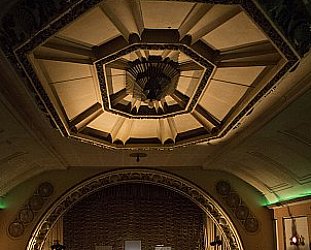
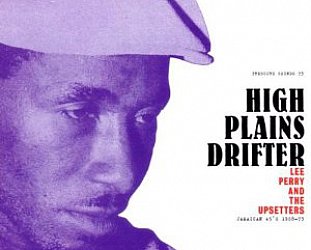
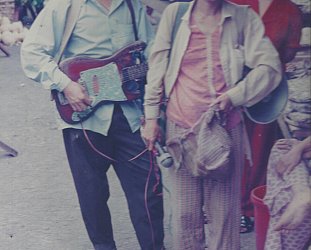
post a comment